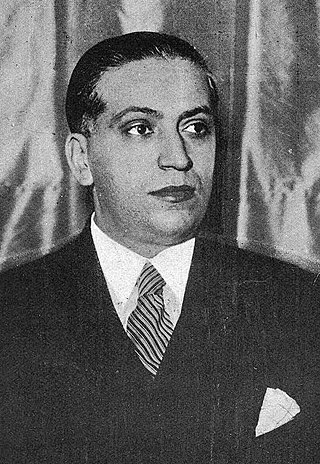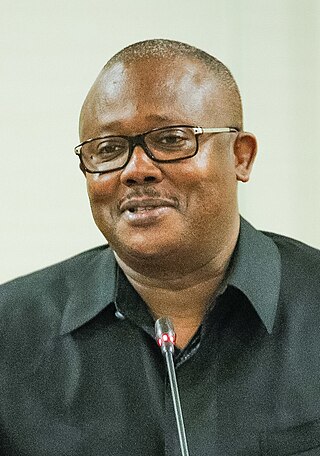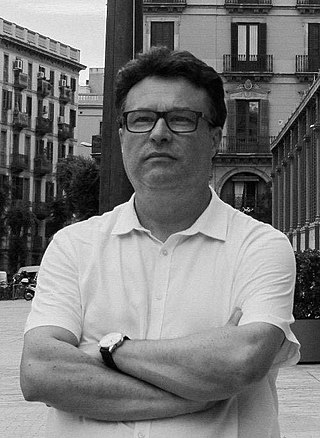
Francesc Macià i Llussà was a Catalan politician who served as the 122nd president of the Generalitat of Catalonia, and formerly an officer in the Spanish Army.

Santiago José Carrillo Solares was a Spanish politician who served as General Secretary of the Communist Party of Spain (PCE) from 1960 to 1982.

Antonio Tejero Molina is a Spanish former lieutenant colonel of the Guardia Civil, and the most prominent figure in the failed coup d'état against the newly democratic Spanish government on 23 February 1981.

A coup d'état was attempted in Spain in February 1981 by elements of the Civil Guard and the Spanish military. The failure of the coup marked the last serious attempt to revert Spain to Francoist government and served to consolidate Spain's democratization process. King Juan Carlos I played a major role in foiling the coup, and the monarchy emerged with renewed legitimacy as a result.

Josep Borrell Fontelles is a Spanish politician serving as High Representative of the Union for Foreign Affairs and Security Policy since 1 December 2019. A member of the Spanish Socialist Workers' Party (PSOE), he served as President of the European Parliament from 2004 to 2007 and as Minister of Foreign Affairs, European Union and Cooperation in the Government of Spain from 2018 to 2019.

Josep Piqué Camps was a Spanish politician of the conservative People's Party (PP). He served in ministerial departments under the José María Aznar government. He also helmed the People's Party of Catalonia from 2003 to 2007.

José Calvo Sotelo, 1st Duke of Calvo Sotelo, GE was a Spanish jurist and politician. He was the minister of finance during the dictatorship of Miguel Primo de Rivera and a leading figure during the Spanish Second Republic. During this period. he became an important part of Spanish Renovation, a monarchist movement. Calvo Sotelo's assassination in July 1936 by the bodyguard of PSOE party leader Indalecio Prieto was an immediate prelude to the triggering of the Spanish military coup of July 1936 that was plotted since February 1936, the partial failure of which marked the beginning of the Spanish Civil War.

The Union of the Democratic Centre was an electoral alliance, and later political party, in Spain, existing from 1977 to 1983. It was initially led by Adolfo Suárez.

The Spanish transition to democracy, known in Spain as la Transición or la Transición española, is a period of modern Spanish history encompassing the regime change that moved from the Francoist dictatorship to the consolidation of a parliamentary system, in the form of constitutional monarchy under Juan Carlos I.

The 1982 Spanish general election was held on Thursday, 28 October 1982, to elect the 2nd Cortes Generales of the Kingdom of Spain. All 350 seats in the Congress of Deputies were up for election, as well as 208 of 254 seats in the Senate.
Operation Galaxia was the codename given to the plan which preceded the 23-F attempted coup d'état in Spain. It was named Galaxia, because the officers who took part met in Cafetería Galaxia in Madrid, on 11 November 1978.

Segismundo Moret y Prendergast was a Spanish politician and writer. He was the prime minister of Spain on three occasions and the president of the Congress of Deputies on two occasions.

Landelino Lavilla Alsina was a Spanish lawyer and politician who served as the minister of justice from 1976 to 1979. He also served as member of parliament and as senator. His most important role was as President of the Congress of Deputies during the coup d'état of 23-F in 1981. Jurist Eduardo García de Enterría called him the "principal architect of the transition to democracy".

Palacio de las Cortes is a building in Madrid where the Spanish Congress of Deputies meets. It is located on the Calle Zorrilla and the Carrera de San Jerónimo, near the Paseo del Prado. It was built by Narciso Pascual Colomer from 1843 to 1850. in the neoclassic style and is one of the most emblematic buildings of Madrid from the 19th century.

Umaro Mokhtar Sissoco Embaló is a Bissau-Guinean politician serving as the president of Guinea-Bissau since February 2020. He is a political scientist and military officer who previously served as prime minister between November 2016 and January 2018.

Alfonso Armada Comyn, 9th Marquis of Santa Cruz de Rivadulla was a Spanish military officer involved in both the Spanish Civil War and the 1981 Spanish coup d'état attempt.

Joan Josep Nuet i Pujals is a Spanish politician from Catalonia who previously served as Member of the Congress of Deputies of Spain. He was previously a member of the Senate of Spain and the Parliament of Catalonia.

The Spanish Regional Federation of the International Workingmen's Association, known by its Spanish abbreviation FRE-AIT, was the Spanish chapter of the socialist working class organization commonly known today as the First International. The FRE-AIT was active between 1870 and 1881 and was influential not only in the labour movement of Spain, but also in the emerging global anarchist school of thought.

Josep Dencàs i Puigdollers was a Catalan nationalist politician active in the Republican Left of Catalonia.
Alone in the Night is a 2024 Spanish comedy-drama film written, directed, and produced by Guillermo Rojas. It stars Pablo Gómez-Pando, Andrea Carballo, Beatriz Arjona, Félix Gómez, Alfonso Sánchez, and Paula Usero.


















